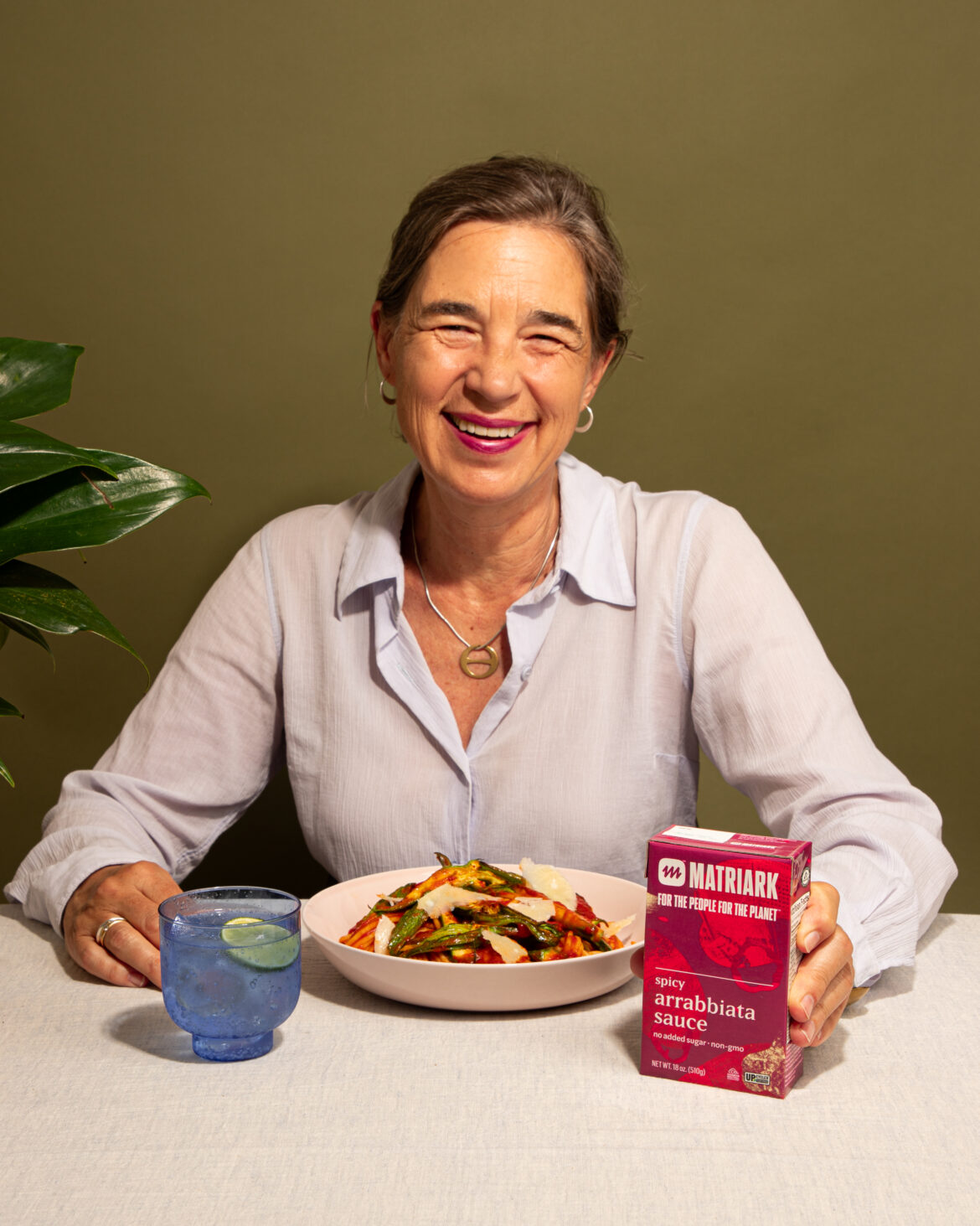“Upcycling” is a term that many of us even a decade ago didn’t know — the process of transforming byproducts, waste materials, useless, or unwanted products into new materials or products of better quality or for better environmental value. While the term originates with Reiner Pilz, a German engineer, Anna Hammond is the truest forebear of upcycling in our world.
As CEO and Co-Founder of Matriark Foods, Anna Hammond rescues excess food that would remain unharvested, and instead makes magic with it. Matriark tomato sauces can famously be found on the shelves of large grocery stores such as Whole Foods, and Matriark soups have been a mainstay of the Pantry Link program that the Center helped pilot this past Spring semester at Hunter College.
We were delighted to have the opportunity to speak with Anna about her perspectives on upcycling and what it means to run a sustainable food business.
As a business owner, what duty do you think industry has towards ensuring an equitable, sustainable food system?
100% duty, just like every citizen and business. We’re all in this together, and if we don’t ensure an equitable, just, and sustainable food system, the environment will continue to disintegrate, people will go hungry, and war will increase.
What Matriark projects are you most excited about for the future?
I’m really excited about our recent launch on the Feeding America marketplace and our plans to grow our business with FA, the Global Foodbanking network, and other emergency food providers. A LOT of money gets spent on food that isn’t great for people of the environment and Matriark has an opportunity to disrupt that space with amazing food that’s good for both, and good for farmers because we pay them for their surplus.
How has the landscape of upcycling, food rescue, and sourcing changed since you started Matriark?
It’s really exploded. We were one of 9 founding companies of the Upcycled Food Association. Now there are over 250 companies, trend reports (like Mintel, Rabobank, in which Matriark has been featured) have done analyses on the market opportunity and that has accelerated interest, and it’s now commonly understood that upcycling is a very impactful solution to mitigating the negative impacts (environmental and nutritional losses) of wasted food.
What do you think is overlooked most often when discussing the foodscape of New York?
How hard it is to disrupt, how much untapped resource and opportunity there is, how long it takes to make changes.
What is one word you’d use to describe our food system? Improving
Who is your food policy hero? Ertharin Cousin
What was your breakfast this morning? Homa Dashtaki’s White Moustache Sour Cherry yogurt.
What is your favorite food? (at this moment): Fresh Asparagus lightly steamed with a touch of good olive oil and salt.
What is your favorite last meal on earth? Grilled Spanish Mackerel on fresh greens. Potatoes with Paddlefish Roe and Buerre Blanc (I just had this at Foul Witch and it blew me away). My mother’s strawberry tart.
What is your favorite food hangout? The kitchen table of anyone in my family.
Who are your food policy social media must-follows? @fao @worldfoodprogramme


